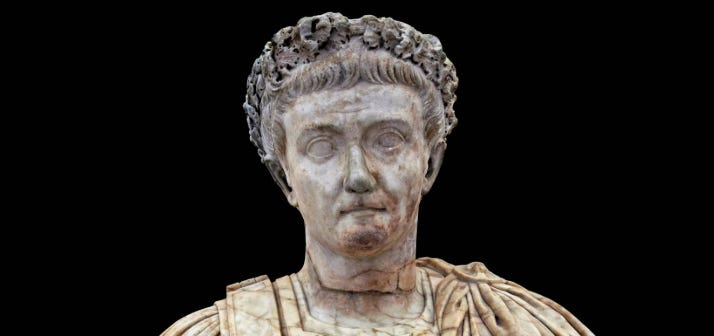Dear Classical Wisdom Member,
I suspect we’ve all accepted that objectivity in the media has gone out the window. Perhaps I sound a bit cynical (in the modern sense of course, I wouldn’t dare use Diogenes' legacy in vain!), but it’s been a while since boring ‘just the facts ma'am’ headlines topped the periodicals. We’ve become accustomed to shrieking verbs, emotive adjectives and slanderous nouns.
Of course biases exist, but more often than not, these disclaimers are missing...Why does truth, after all, have to get in the way of entertainment and click rates?
We here at Classical Wisdom try to maintain an unbiased position when discussing history, best we can. It is a critical mission considering how history in general and the classics specifically have been employed for nefarious means in the past (think Mussolini). Knowledge is a powerful tool and the annals are filled with men and women who wield for good... and for evil.
This is, of course, nothing new. Wisdom as a weapon is an old trick, and shaping the historical narrative a common tactic.
Take, for example, the stark contrast between Augustus and Tiberius, the first two Roman Emperors and starters of the Julio-Claudian Dynasty. Of course, they have had plenty of ink spilled to describe them and what has been written is what is remembered. Augustus, regular readers may recall, had the poets in his pocket and despite his flaws has been regaled as a regal leader. Tiberius, on the other hand, has gone down as grotesque, portrayed as a paranoid and tyrannical man.
And yet, from whom do we get this description? Primarily from Tacitus (AD 56–120) and Suetonius (AD 69–122), both of whom were politically motivated to render the man as incompetent. Suetonius in particular made ample use of grossly exaggerated and sensationalized rumours, specifically of the alleged debauchery on the island of Capri.
The lesser known historian and contemporary of Tiberius, Velleius Paterculus (c. 19 BC – AD 31), however, characterized the emperor favorably. His Roman History (Book II) shows a reluctant but capable leader, a servant of Rome, respected for his military achievement and diplomatic skills. Keep in mind, Paterculus did serve under Tiberius, so equally could be compromised by his personal loyalty to the man.
As so, the debate about Tiberius rages on... both today as in the ancient world. His contemporaries were divided, as our modern scholars.
So how to discuss such a controversial topic? How can we maintain our neutrality? I like to think that for the majority of themes living outside the political realms which we discuss helps us because it allows us (I fancy like Thucydides) a wider perspective on issues, distance, literally and emotionally, in which to process events.
Despite this, there are times when personal situations impact our impartiality... and today’s topic is one such occurrence. I, unlike the corrupted fourth estate, will admit my bias. I will tell you the truth, so you know exactly what’s going on.
You see, I have, metaphorically speaking, a dog in this fight. I have a reason to address the slander and possibly repair some of Tiberius’ reputation. Why would I want to rehabilitate a man whose nicknames were at times: "Biberius Caldius Mero" (Drinker of Hot Wine), “Tristissimus Hominum” (The Gloomiest of Men) and “Senex Caprae” (The Old Goat of Capri)?
Because a member of my family (I will not reveal who for sake of anonymity) decided to name their son... Tiberius.
So due to family bonds (as well as our regular mission of seeking truth), I reckon it’s a good idea to discuss the other side of Tiberius: one that is more human and complex, as he was seen by his contemporaries... It’s also worthwhile to question the hostile tradition of him being a monster as depicted (some say started) by Tacitus and Suetonius.
Fortunately there is vast and diverse evidence, carefully collected and presented in Edward Champlin and editor Robert Kaster’s newly released book, Tiberius and His Age: Myth, Sex, Luxury, and Power.
In fact, today for our Classical Wisdom Members we will have a special extract, showing yet another facet of the complicated Tiberius: his curious relationship with fire. Read on to discover what the Roman emperor did when a horrific flame ripped through Rome...
Afterwards, let me know what you think... Was Tiberius a man or a monster? Comment below!
All the best,
Anya Leonard
Founder and Director
Classical Wisdom
The Death of the Phoenix
by Edward Champlin and edited by Robert Kaster
In 27 CE, two horrific disasters struck Rome in quick succession. First, a temporary amphitheater in the suburban town of Fidenae collapsed, killing and injuring tens of thousands of people. Immediately thereafter, an extraordinarily violent fire devastated the Caelian Hill in Rome.
Keep reading with a 7-day free trial
Subscribe to Classical Wisdom to keep reading this post and get 7 days of free access to the full post archives.





